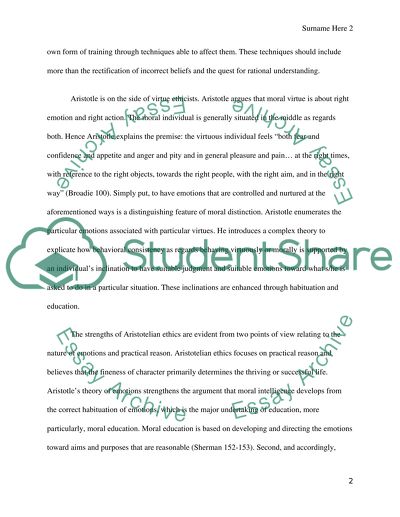Cite this document
(“Aristotelian Ethics: Emotion and Moral Virtue Essay”, n.d.)
Retrieved from https://studentshare.org/philosophy/1469003-aristotelian-ethics-emotion-and-moral-virtue
Retrieved from https://studentshare.org/philosophy/1469003-aristotelian-ethics-emotion-and-moral-virtue
(Aristotelian Ethics: Emotion and Moral Virtue Essay)
https://studentshare.org/philosophy/1469003-aristotelian-ethics-emotion-and-moral-virtue.
https://studentshare.org/philosophy/1469003-aristotelian-ethics-emotion-and-moral-virtue.
“Aristotelian Ethics: Emotion and Moral Virtue Essay”, n.d. https://studentshare.org/philosophy/1469003-aristotelian-ethics-emotion-and-moral-virtue.


